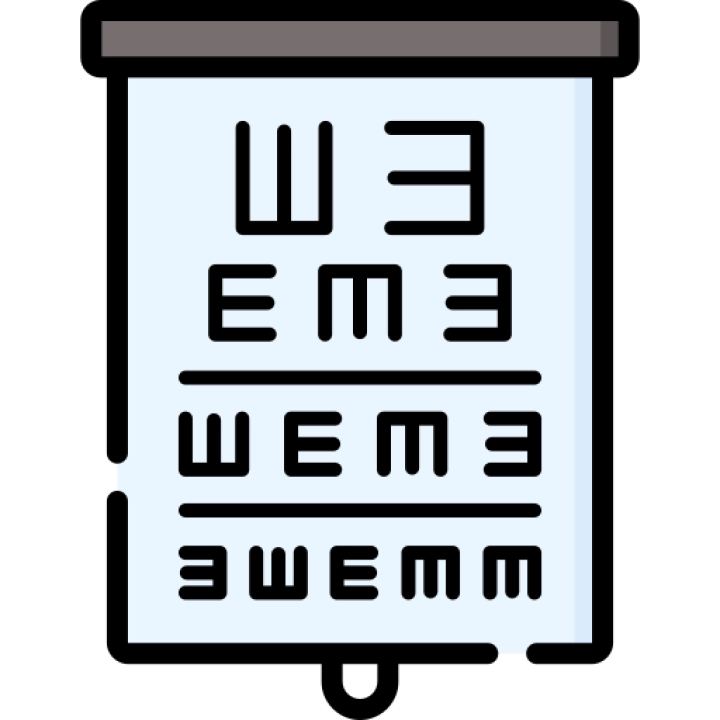College: Health Sciences
Optometry is a healthcare profession focused on the examination, diagnosis, treatment, and management of diseases and disorders of the visual system. Students gain knowledge and skills in optics, vision science, clinical optometry, and patient care. The program emphasizes practical clinical experience, theoretical knowledge, and an understanding of the principles of optics and eye health. Graduates are prepared for careers as optometrists in various clinical settings.
Learning Objectives:
- Understand the basics of optics, vision science, and eye health.
- Develop skills in clinical optometry and patient care.
- Learn techniques for examining, diagnosing, and treating visual system disorders.
- Explore principles of contact lens distribution and fitting.
- Analyze challenges and opportunities in optometry practice.
- Develop communication skills, clinical reasoning, and problem-solving for patient care.
Main Curriculum:
- Introduction to Optometry
- Overview of optometry, basic concepts, and historical context.
- Basics of the visual system and eye anatomy.
- Optics and Vision Sciences
- Principles of optics, including geometrical optics, physical optics, and optical instruments.
- Concepts in vision science, including visual perception, color vision, and binocular vision.
- Clinical Optometry
- Basics of clinical optometry, including eye exams, diagnostic techniques, and treatment plans.
- Techniques for conducting comprehensive eye exams and assessing visual function.
- Eye Diseases and Pathology
- Principles of ophthalmic diseases and pathology, including common eye diseases and conditions.
- Techniques for diagnosing, managing, and treating eye diseases.
- Contact Lens and Eyewear Distribution
- Principles of lens distribution, including design, fitting, and adjustment of eyeglasses lenses.
- Techniques for fitting and prescribing contact lenses.
- Pediatric and Geriatric Optometry
- Principles of pediatric and geriatric optometry, including visual development and age-related eye conditions.
- Techniques for managing visual health in children and the elderly.
- Clinical Practical Training in Optometry
- Real-world optometry experiences, including observations, internships, and practical projects in clinical settings.
- Techniques for applying acquired skills in practical optometry environments.
- Graduation Project in Optometry
- A comprehensive project applying skills acquired in clinical optometry, eye disease management, or lens distribution.
- Techniques for presenting a polished and effective optometry project.
Assessment Methods:
- Reports on optics and vision sciences, clinical optometry case studies, eye disease management plans, contact lens distribution and fitting projects, practice reports, graduation projects, group projects, and internships.
Recommended Textbooks:
- "Clinical Optometry" by David A. Goss.
- "Visual Perception: Physiology, Psychology, and Ecology" by David Whitney.
- "Clinical Optometry" by various authors.
- "Eye Diseases: Diagnosis and Management" by various authors.
- "Optical Dispensing" by various authors.
- "Contact Lenses" by various authors.
Prerequisites:
Basic knowledge in biology, physics, and anatomy. Suitable for students interested in optics, vision science, and healthcare professions.
Duration of Specialization:
Typically, the study duration for a bachelor's degree is 4 years, including coursework, projects, clinical training, and internships. A Doctor of Optometry degree usually requires an additional 4 years of professional education.
Certification:
Graduates can earn a degree in optometry and pursue professional certification and licensing as optometrists.
Target Audience:
Aspiring optometrists, vision scientists, and healthcare professionals seeking to specialize in optometry and eye care. The specialization equips students with the clinical, theoretical, and practical skills necessary to excel in optometry, supporting careers in various clinical settings as optometrists.

